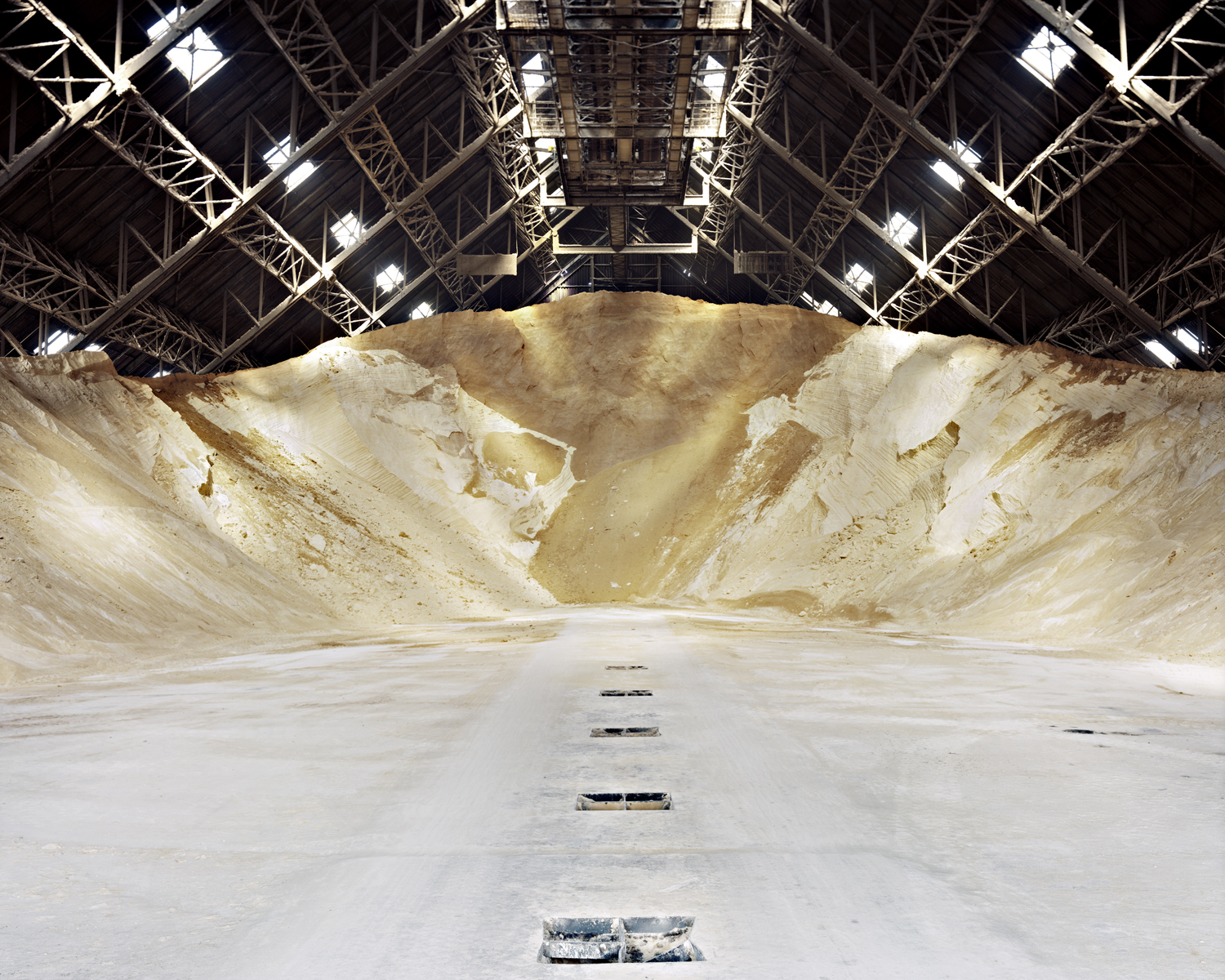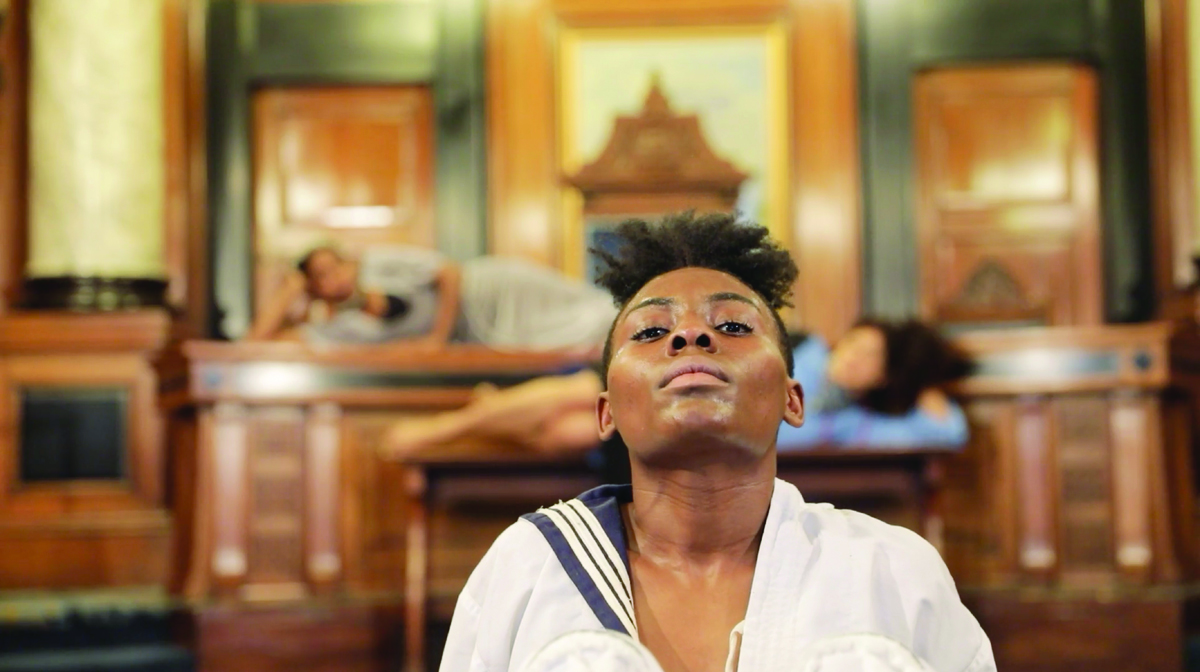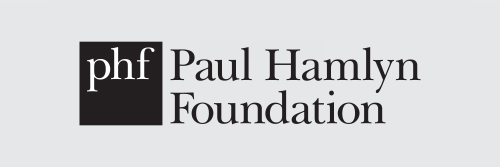Liverpool Biennial 2021: The Stomach and the Port
19 May - 6 June 2021
OPEN WEDNESDAY – SUNDAY, 11 – 4. SEE DISTANCING GUIDELINES HERE
Liverpool Biennial 2021: The Stomach and the Port draws on non-Western ways of thinking to explore notions of the body, challenging an understanding of the individual as a defined, self-sufficient entity. The Stomach and the Port develops through three entry points – stomach, porosity and kin. The stomach is viewed as a primary organ engaging with the world. Porosity is embraced as a way of responding to borders or the strict contours of the skin. The notion of kin is revisited as a social tissue that prepares us for abundant futures. Liverpool, and its maritime history as a point of global contact and circulation, provides the perfect ecosystem to situate these enquiries.
The Port of Liverpool is at the heart of this Biennial. The transatlantic movement of enslaved people haunts the city’s past while the repercussions of these experiences are still felt across the world today. This trade in commodified human beings and goods, such as sugar and cotton, was part of a global project of modernity dependent upon exploitation. The two artists showcased in our gallery, Zineb Sedira and Alberta Whittle, both engage with these long histories, showing us how different forms of the past exist in our present moment.
Zineb Sedira

Zineb Sedira’s works, from her Sugar Routes (2013) series, recount the history of transoceanic slavery and forced migration, the triangular trade routes of the eighteenth and nineteenth centuries and the continued trade of sugar across the Atlantic for mass consumption. Sedira’s photographic prints depict sugar extracted from different parts of the world housed in a modern warehouse in the French port city of Marseille. The mountainous piles of sugar present a landscape of extraction where multiple geographies convene and merge with one another; the warehouse becoming an in-between space of encounter before the sugar is processed for consumption. Juxtaposed with two sculptures of an anchor and propeller made from cane sugar found in the French silo, the works act as a metaphor for migration and diaspora.
Commissioned by Marseille Provence 2013, European Capital of Culture and The Port of Marseille.
Alberta Whittle

Alberta Whittle’s film, between a whisper and a cry (2019), also reflects upon these oceanic routes and worldview, hinging on memory, labour and the afterlives of colonialism in our contemporary world. The film is based on Barbadian poet and historian Kamau Brathwaite’s (1930–2020) idea of tidalectics, a way of thinking about the world and identity that draws on oceans and movement, rather than being fixed in a specific country or place. It brings together happenings and events, narrative texts and voices, using sound and oral histories as forms of knowledge. Weather is an important visual and audio element of the film, referencing the legacy of colonial extraction as the starting point for present-day climate instability in the Caribbean, while drawing parallels with the exploitation inherent within the contemporary tourist industry. For Whittle, understanding the past becomes the foundation for moving towards present-day healing and nurturing. Through the film, viewers are encouraged to synchronise their bodies to the rhythm of Whittle’s breathing and the conditions of ocean life, invoking a sense of compassion, kinship, groundedness and understanding within one’s own body.
Images: Zineb Sedira, Sugar Routes I, 2013
Alberta Whittle, between a whisper and a cry (film still), 2019
OPEN WEDNESDAY – SUNDAY, 11 – 4. SEE DISTANCING GUIDELINES HERE
Liverpool Biennial 2021: The Stomach and the Port draws on non-Western ways of thinking to explore notions of the body, challenging an understanding of the individual as a defined, self-sufficient entity. The Stomach and the Port develops through three entry points – stomach, porosity and kin. The stomach is viewed as a primary organ engaging with the world. Porosity is embraced as a way of responding to borders or the strict contours of the skin. The notion of kin is revisited as a social tissue that prepares us for abundant futures. Liverpool, and its maritime history as a point of global contact and circulation, provides the perfect ecosystem to situate these enquiries.
The Port of Liverpool is at the heart of this Biennial. The transatlantic movement of enslaved people haunts the city’s past while the repercussions of these experiences are still felt across the world today. This trade in commodified human beings and goods, such as sugar and cotton, was part of a global project of modernity dependent upon exploitation. The two artists showcased in our gallery, Zineb Sedira and Alberta Whittle, both engage with these long histories, showing us how different forms of the past exist in our present moment.
Zineb Sedira

Zineb Sedira’s works, from her Sugar Routes (2013) series, recount the history of transoceanic slavery and forced migration, the triangular trade routes of the eighteenth and nineteenth centuries and the continued trade of sugar across the Atlantic for mass consumption. Sedira’s photographic prints depict sugar extracted from different parts of the world housed in a modern warehouse in the French port city of Marseille. The mountainous piles of sugar present a landscape of extraction where multiple geographies convene and merge with one another; the warehouse becoming an in-between space of encounter before the sugar is processed for consumption. Juxtaposed with two sculptures of an anchor and propeller made from cane sugar found in the French silo, the works act as a metaphor for migration and diaspora.
Commissioned by Marseille Provence 2013, European Capital of Culture and The Port of Marseille.
Alberta Whittle

Alberta Whittle’s film, between a whisper and a cry (2019), also reflects upon these oceanic routes and worldview, hinging on memory, labour and the afterlives of colonialism in our contemporary world. The film is based on Barbadian poet and historian Kamau Brathwaite’s (1930–2020) idea of tidalectics, a way of thinking about the world and identity that draws on oceans and movement, rather than being fixed in a specific country or place. It brings together happenings and events, narrative texts and voices, using sound and oral histories as forms of knowledge. Weather is an important visual and audio element of the film, referencing the legacy of colonial extraction as the starting point for present-day climate instability in the Caribbean, while drawing parallels with the exploitation inherent within the contemporary tourist industry. For Whittle, understanding the past becomes the foundation for moving towards present-day healing and nurturing. Through the film, viewers are encouraged to synchronise their bodies to the rhythm of Whittle’s breathing and the conditions of ocean life, invoking a sense of compassion, kinship, groundedness and understanding within one’s own body.
Images: Zineb Sedira, Sugar Routes I, 2013
Alberta Whittle, between a whisper and a cry (film still), 2019

